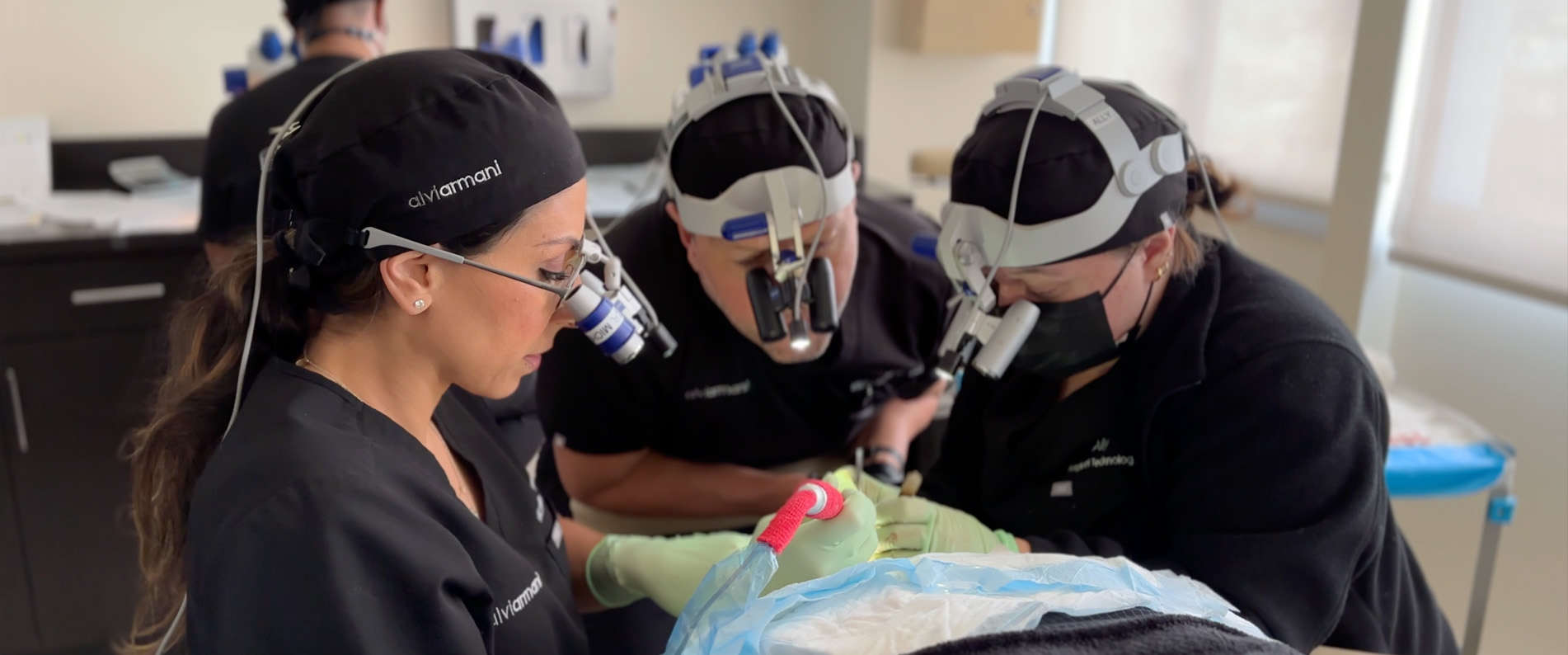Why Is Your Hair Falling Out? Understanding the Causes and Solutions
Hair loss can be a frustrating experience, and people often search for answers. Many factors contribute to hair thinning or shedding, ranging from genetics and stress to health conditions.
Common Causes of Hair Loss
- Genetics: Hereditary conditions, like androgenic alopecia, affect millions worldwide.
- Nutritional Deficiencies: Lack of iron, zinc, or vitamin D may weaken hair follicles.
- Hormonal Imbalances: Conditions like PCOS or menopause disrupt hormone levels, leading to hair thinning.
- Stress: Emotional or physical stress can cause temporary hair loss known as telogen effluvium.
- Medical Conditions: Autoimmune diseases, like alopecia areata and thyroid problems, can cause sudden shedding.
Genetics, Medical Conditions, Lifestyle and Treatments
Identifying the root cause of your hair loss is essential. For most men and many women, hair loss is genetic and can be treated with medical therapy if addressed early. If you suspect your hair loss is not genetic, consultation with a medical expert in hair loss is recommended. This often begins with a visit to your dermatologist for evaluation and possible blood workup. Once you have a proper diagnosis, you can then pursue the proper treatment by consulting with a hair restoration specialist who is current on the latest medical and surgical options, as listed below.
Treating Genetic Hair Loss: Options and Innovations
Genetic hair loss, or androgenic alopecia, is one of the most common causes of hair thinning in both men and women. While it’s not reversible, several treatments can slow progression and even restore hair in some cases.
Topical and Oral Treatments:
- Minoxidil: This over-the-counter solution stimulates hair growth by improving scalp circulation.
- Finasteride: A prescription pill that reduces hormone levels contributing to hair loss, particularly effective for men and post-menopausal women.
- Dutasteride: This prescription pill is a more potent than finasteride for hair loss because it inhibits both types of 5-alpha-reductase (5AR), the enzyme that converts testosterone to dihydrotestosterone (DHT).
- Low-Level Laser Therapy (LLLT): Devices like laser combs or caps can enhance follicle health.
Hair Restoration Procedures
- Hair Transplant Surgery: Techniques like follicular unit extraction (FUE) transplant individual follicular units of 1 to 4 hairs from the donor area to thinning or bald areas of the scalp. At AlviArmani, our physicians specialize in FUE and believe it is the most effective, minimally noninvasive, and ethically appropriate surgical procedure.
- Scalp Micropigmentation: A medical scalp tattooing procedure that replicates hair follicles, creating the appearance of fuller hair.
- Platelet-Rich Plasma (PRP): PRP Injections of your own concentrated platelets may rejuvenate follicles and promote regrowth.
Emerging Treatments
Gene therapy, exosomes, and stem cell research are on the horizon, offering hope for more effective solutions in the future.
Consistency in treatment is crucial for long-term results, and consulting a hair loss expert is critical to achieving and maintaining these results.
The cost of a hair transplant varies widely depending on the clinic, location, and the extent of the procedure. Hair transplant surgery costs can range significantly based on the location and expertise of your surgeon, from $5,000 to $40,000 in the United States.
Insurance typically doesn’t cover this cosmetic procedure, but many clinics, including AlviArmani, offer patient financing options.
Emerging treatments for hair loss include several innovative approaches:
- Stem Cell Therapy: Using stem cells to stimulate dormant hair follicles.
- Exosome Therapy: Tiny cell components deliver growth signals to repair and activate hair growth. Exosome therapy for hair loss is an emerging regenerative treatment that uses exosomes—tiny cell-derived particles rich in growth factors. These particles signal damaged or dormant hair follicles to repair and stimulate growth. Harvested from stem cells, exosomes are injected into the scalp to promote healthier, thicker hair. The treatment is minimally invasive and is being explored as a less intensive alternative to PRP or surgical methods. While promising, it’s still in experimental stages and requires further clinical trials to validate its efficacy and safety.
- Customized Combination Therapies: At AlviArmani, our in-house R&D Lab is led by Dr. Charitha Seneviratne, a Professor of Biochemistry with a PhD in Molecular Biology/Physiology. In our Lab, we have developed effective topical and oral medications specifically for our patients to maintain their hair.
- Gene Therapy: Targeting genes responsible for hair loss to modify follicle behavior.
At AlviArmani, our physicians are dedicated to advancing medical and surgical solutions to hair loss. In conjunction with our R&D Department, we continually make advancements in improved hair growth and healing.



